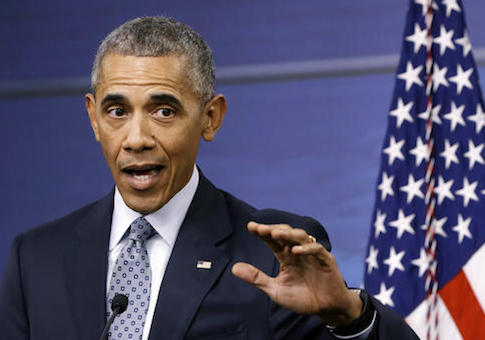The Obama administration is giving labor unions major "leverage" in new contracting regulations that would blacklist companies for allegations of workplace violations, rather than actual convictions.
On Aug. 25, the administration finalized an executive order issued by Obama in 2014 that was aimed at promoting "economy and efficiency in procurement by contracting with responsible sources who comply with labor laws." The new rules will force companies to disclose any allegations of unfair labor practices—as opposed to convictions or settled violations.
Unions hailed the rule as a major victory. Teamsters for a Democratic Union celebrated the new standards’ "potentially game-changing penalties" for companies embroiled in labor disputes. Veteran labor attorney Robert Schwartz wrote in a blog post republished by TDU that the order could boost union negotiating tactics because they could threaten a company’s ability to get government contracts with a mere allegation of misconduct.
"The Executive Order gives unions unprecedented new leverage against companies and institutions that contract with the federal government. Unless the Order or its implementing regulations are overturned by the courts (employers have promised lawsuits) or revoked by a future president (wonder who), unions should be able to significantly increase their bargaining power by the simple expedient of filing meritorious charges," Schwartz said.
Labor watchdogs and business groups came to a similar conclusion. Marc Freedman, executive director of labor law policy at the Chamber of Commerce, said that the new regulations appeared to be a handout to Democrats’ allies in organized labor.
"If you pull back the curtain it is clear the order has nothing to do with improving federal contracting and everything to do with giving unions more tools for them to use against employers," Freedman said in a post. "Outside the sanitized world of labor relations, this kind of tactic is known as extortion."
Congressional Republicans criticized the new regulations for hurting businesses to benefit big labor. A House Education and Workforce Committee spokeswoman told the Washington Free Beacon that lawmakers are concerned that the White House is using executive action to push an agenda that he could not get passed through legislative means.
"Big Labor just proved what we’ve known all along—this blacklisting scheme is simply another way to tilt the playing field in favor of union leaders," she said. "It’s unfortunate the administration would rather spend its time and resources developing pro-union tools than using the system that’s long been in place to hold federal contractors accountable and promote fair pay and safe workplaces."
The regulations are expected to affect 24,000 companies.
